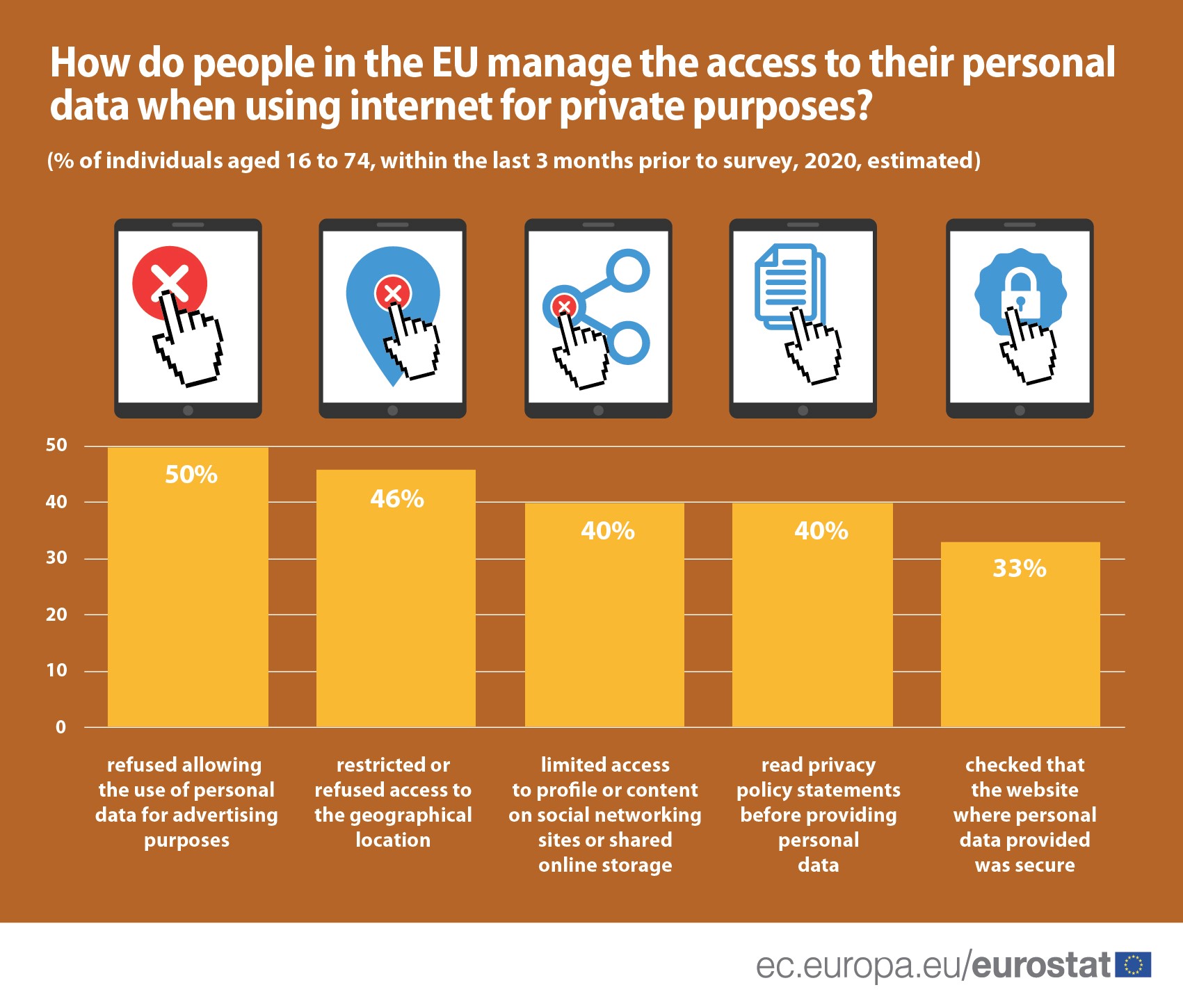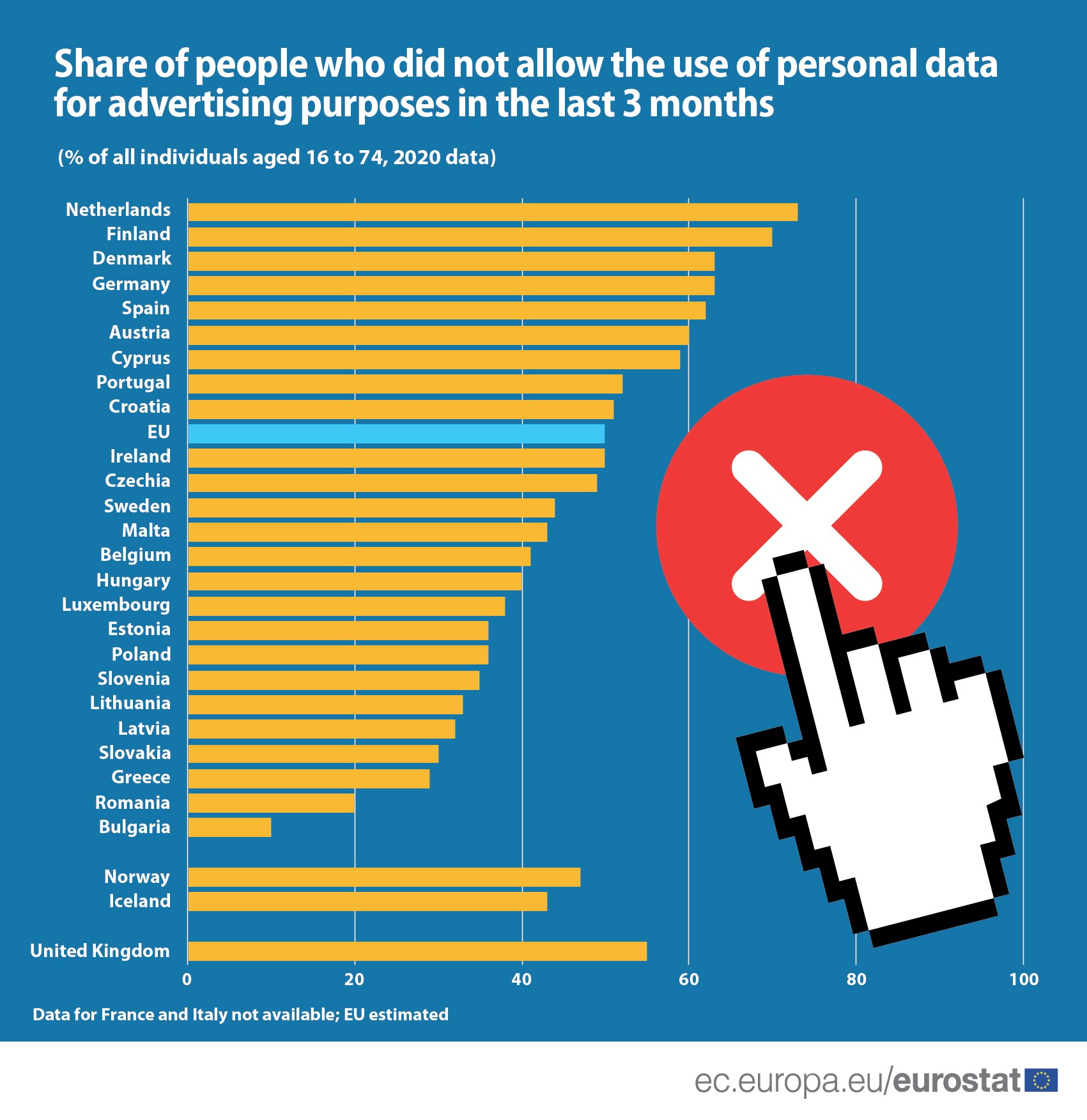How willing are EU citizens to provide access to their personal data when they are online? The latest data from the Survey on Information and Communication Technologies (ICT) usage in households and by individuals sheds some light here.
According to 2020 survey results, 1 in 2 people aged between 16-74 years refused to allow the use of their personal data for advertising purposes when using the internet for private purposes in the preceding 3-month period. In addition, 46% reported that they only allowed restricted access to their geographical location, or refused access to this information entirely. Fewer (40%) EU citizens read privacy policy statements before providing personal data. Similarly, 40% limited access to their social networking site profiles or content or shared online storage. Meanwhile 33% checked that the website where they provided their personal data was secure.
Source dataset: isoc_cisci_pvr20
The share of people refusing to allow the use of their personal data for advertising varied across the EU Member States. The highest shares were observed in the Netherlands (73%), Finland (70%), Denmark and Germany (both 63%) and Spain (62%).
In contrast, the lowest shares were recorded in Bulgaria (10%), Romania (20%), Greece (29%), Slovakia (30%) and Latvia (32%).
Source dataset: isoc_cisci_pvr20
Eurostat has released fresh 2020 data for the Community survey on ICT usage in European households and individuals; the full data from the survey is available here.
This news item marks the International Data Protection Day celebrated on 28 January.
Notes :
- The data in this article are based on the annual survey on use of ICT in households and by individuals; the results above refer to individuals’ experiences during the last 3 months prior to the survey. Due to COVID-19 restrictions, the timing of this 3-month reference period varies across countries.
- 2020 data for France and Italy are not available. As a result, EU value has been estimated.
- The European Union (EU) includes 27 EU Member States. The United Kingdom left the European Union on 31 January 2020. Further information is published here.
To contact us, please visit our User Support page.
For press queries, please contact our Media Support.



